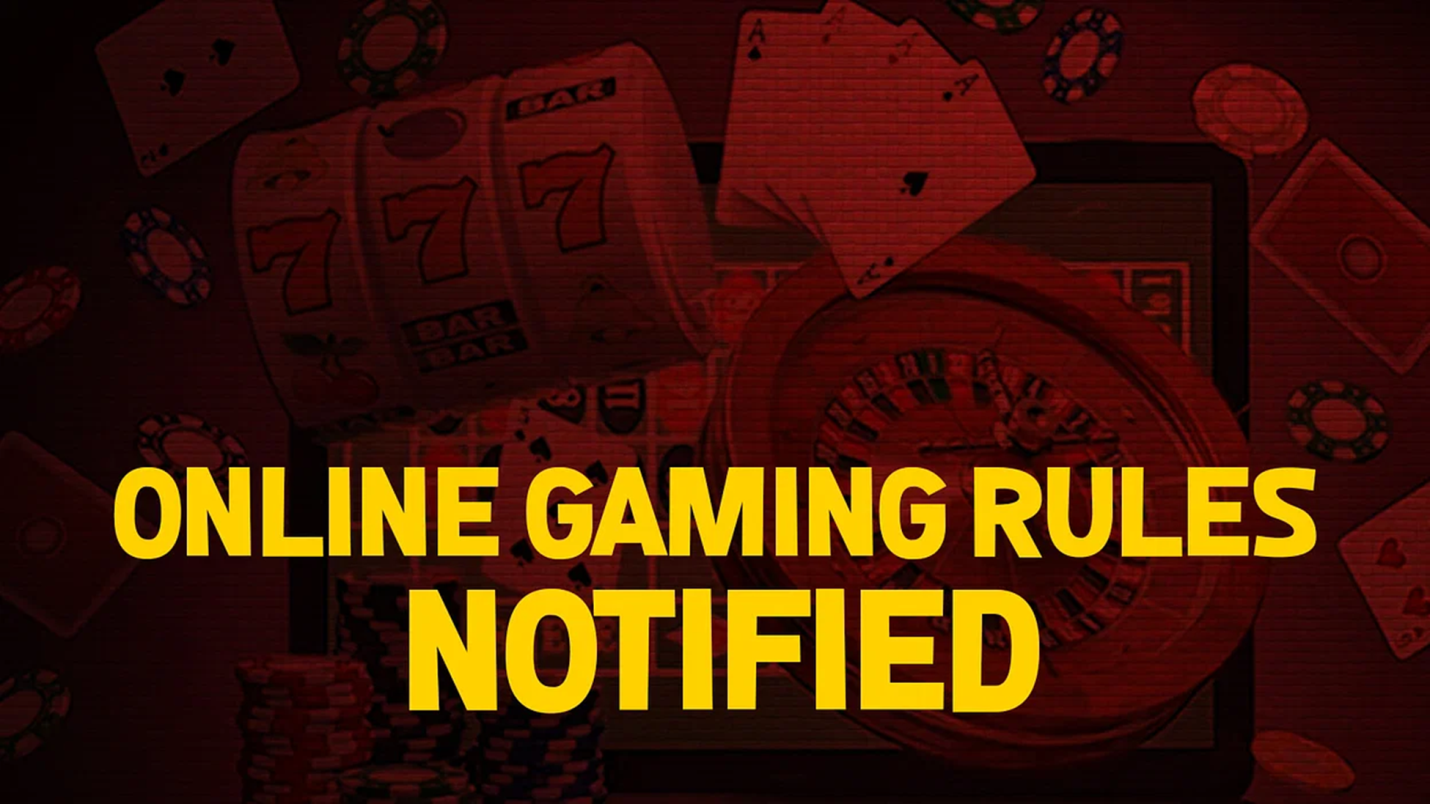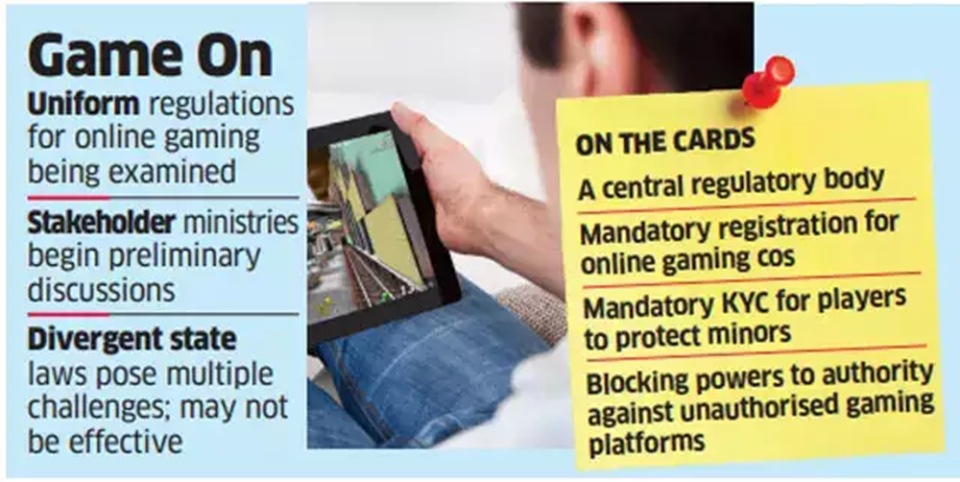Description

Copyright infringement not intended
Context: The conflict between Tamil Nadu and the Centre over online gaming.
Details
Tamil Nadu Law on Online Gaming
- Online gambling and games of chance played for money or other stakes are prohibited by the Bill.
- Definition: It defines online games of chance as those that combine both an element of chance and an element of skill, with the element of chance dominating the element of skill.
- Authority: It creates the Tamil Nadu Online Gaming Authority and provides it with the authority to regulate online gaming businesses.
- The proposed gaming authority for the state will identify games of chance and suggest that they be added to the Schedule of Prohibited Games.
- Outside State Company: Companies based outside the state are expected to undertake specific due diligence measures or block access to forbidden games for Tamil Nadu residents.
Union Government Rules for Online Gaming
- The notified amendments to the Information Technology Rules, 2021, provide clear regulations for the online gambling industry. Games involving gambling on the outcomes of events will be prohibited.
- It provides for the formation of several self-regulatory bodies (SRBs), whose permission is necessary for online games with a financial component.
- Mandatory KYC: Online gaming businesses will also be required to conduct a KYC procedure for players when they make their first deposit into their accounts to play a game. They will be obligated to follow the KYC standards set by the Reserve Bank of India (RBI).

Online gaming: Centre vs Tamil Nadu
- The Union Government has notified amendments to the Information Technology Regulations, 2021, which include regulations for online real money games.
- The government stated that "after the IT rules for online gaming have been notified, state government regulations of online gambling are no longer required."
- While gambling is a state subject, the Government thinks that activities that occur on the Internet, including online gambling and gaming, are entirely within its domain to regulate.
.jpeg)
Concerns
Addiction
- Many people are becoming addicted to online gaming. This is destroying lives and families. Children's obsessive gaming is harming their academic achievement as well as their social lives and interactions with family members.
Health Consequences
- Addictions to video games have also been related to anxiety, depression, obesity, sleeping difficulties, and stress. According to WHO, those who are physically inactive for long periods due to gaming are more likely to develop obesity, sleep disturbances, and other health problems.
Bullying online
- Although there are numerous forms of cyberbullying, some are specific to gaming platforms, such as nasty and damaging remarks, and spamming global chat channels with negative comments about their victims. As a result, victims have attempted suicide or engaged in self-harming behaviour.
Costs to the economy
- Betting on online games is a threat that has resulted in people losing their hard-earned money when their children, knowing or unknowingly, purchased expensive game features.
Cyber security
- Hackers may utilise chat room games to lure users into clicking on harmful links. They may potentially alter a genuine app and distribute the malicious version through Google Play or another official marketplace, infecting our devices.
Concerns about privacy
- Personal information supplied by users on gaming platforms, particularly by youngsters, could be used to violate their privacy.
.jpg)
Way Forward
Limiting gaming hours
- The government can set limits on online gaming hours, particularly for children. For example, China recently prohibited players under the age of 18 from three hours of internet gaming every week. This could be used as a reference for the Indian setting.
Mechanism of Age Restriction
- Each game should comply with a well-established age-rating method, and children should be permitted to proceed only with their parent's permission. OTP verification on Aadhaar could potentially fix this.
Consent to make in-game purchases
- Without the parental agreement, no in-game purchases should be permitted, and the in-game chat function should be prohibited wherever possible.
Education and awareness of users
- The government and gaming businesses should educate players about potential risks and how to recognise cheating and abuse scenarios.
Grievance Redressal
- Online gaming businesses should remove participants' anonymity and create a comprehensive grievance management procedure.
Central Gaming Commission:
- A central government Gaming Authority should be established, and different kinds of self-regulation for the industry should be promoted.

Conclusion
- The government must distinguish between games of skill and games of chance while regulating the gaming business. The government must also balance the necessity to regulate online gaming with individual freedom and choice.
Must Read Articles:
Bill against Online Gaming: https://www.iasgyan.in/daily-current-affairs/bill-against-online-gaming
Regulating Online Gaming: https://www.iasgyan.in/rstv/perspective-regulating-online-gaming
|
PRACTICE QUESTION
Q. Analyze the multifaceted issues presented by online gambling in India. Discuss the steps that must be taken to deal with these difficulties.
|

https://indianexpress.com/article/explained/explained-law/online-gaming-how-tamil-nadu-and-the-centre-have-locked-horns-over-the-issue-8550409/












